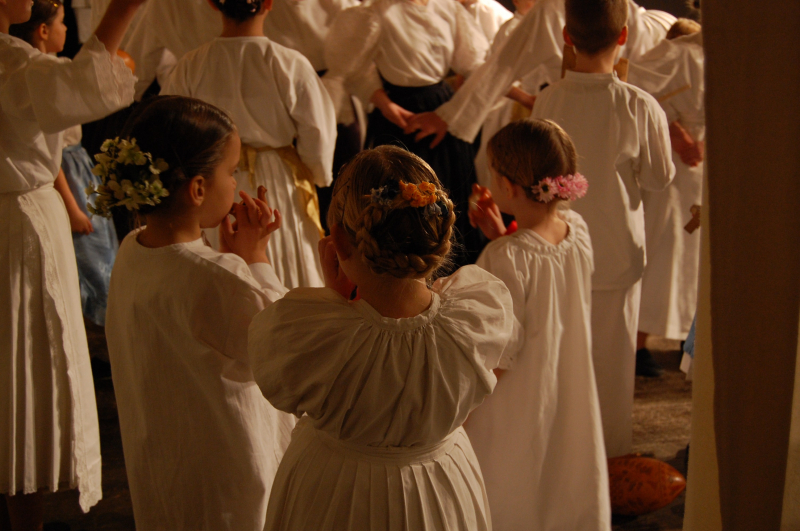Initially, riddles (загадки – zagadki) were part of oral folklore. They were used to improve both logic and imagination. What’s more, they reflected an unusual approach to everyday things. It’s even harder to come up with a good riddle than to solve one, I’d say.
Later, people began to tell riddles during important events, such as weddings, funerals, and the start of harvesting. Guessing the right answer was supposed to bring you luck.
In the 18th century, ideas of the Enlightenment spread in Russia and its followers began to explore Russian folk traditions and culture. That’s when riddles were collected and written down. Some of them are still a part of everyday speech much like proverbs, so knowing the most popular ones may come in handy.
Can you guess the answer?
-
In winter and in summer it’s always the same color (зимой и летом одним цветом – zimoj i letom odnim tsvetom).
-
An elder sits wearing a hundred coats, the one to undress him shall shed tears (cидит дед во сто шуб одет, кто его раздевает, тот слезы проливает – sidit ded vo sto shub odet, kto ego razdevaet, tot slezy prolivaet).
-
In the mountains, in the mountains, a coat and a kaftan is walking around (по горам, по горам ходит шуба да кафтан – po goram, po goram khodit shuba da kaftan).
-
It doesn’t bark, it doesn’t bite, and yet it doesn’t let you into the house (не лает, не кусает, а в дом не пускает – ne laet, ne kusaet, a v dom ne puskaet).
-
A colorful carrying pole hanging over the river (крашеное коромысло через реку повисло – krashenoe koromyslo cherez reku povislo).
-
No legs, but it moves, no eyes, but it cries (ног нет, а идёт, глаз нет, а плачет – nog net, a idyot, glaz net, a plachet).
-
A beautiful girl sits in a dungeon with her braid outside (красна девица сидит в темнице, а коса на улице – krasna devitsa sidit v temnitse, a kosa na ulitse).
-
Under the pines, under the fir trees, lies a bag full of needles (под соснами, под ёлками лежит мешок с иголками – pod sosnami, pod yolkami lezhit meshok s igolkami).
-
Two edges, two rings, and a nail in between (два конца, два кольца, посредине гвоздик – dva kontsa, dva kol'tsa, poseredine gvozdik).
-
No windows, no doors, but the room is full of people (без окон без дверей полна горница людей – bez okon bez dverej polna gornitsa lyudej).
Correct answers: 1) fir tree 2) onion 3) sheep 4) lock 5) rainbow 6) black cloud 7) carrot 8) hedgehog 9) scissors 10) cucumber.
How many did you guess correctly?




